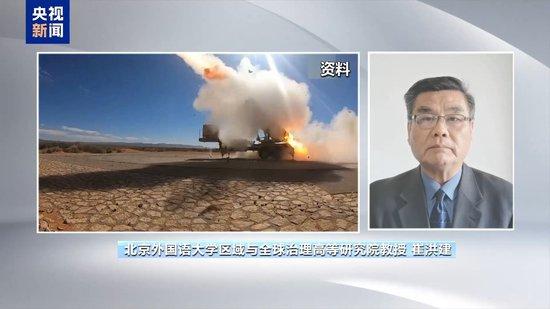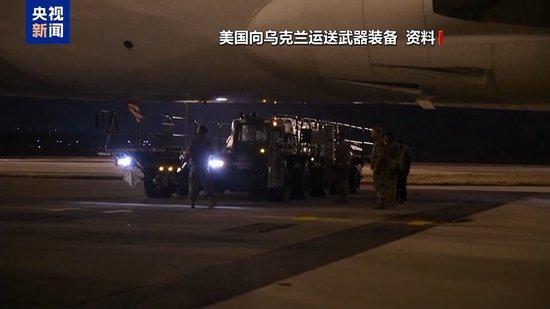

Recently, the White House and the Pentagon in the United States have confirmed that
the United States has temporarily suspended certain support for Ukraine. Several American media outlets reported that
this decision was due to concerns over the excessive decline of America’s military arsenal. On the other hand, U.S. Secretary of State Antony Blinken recently emphasized that
the United States would not abandon its assistance to Ukraine. Analysts believe this is actually a so-called balance strategy adopted by the United States. Experts say that under the constraints on weapon stocks, the United States has chosen to favor Israel between Israel and Ukraine, and
the policy towards Ukraine will be adjusted according to changes in the situation.
Cui Hongjian, Professor at the Institute of Regional and Global Governance, Beijing Foreign Studies University: On one hand, the suspension of supplies by the U.S. does indeed have practical considerations, especially concerning technical aspects. Given that Russia and Ukraine are currently engaged in conflicts, and Iran and Israel are also involved, the U.S. faces difficulties in ensuring its own weapon reserves. Especially when weighing the priorities between Ukraine and Israel, the U.S. has made it clear that it prioritizes supporting Israel. This also demonstrates that the U.S. aims to pressure Ukraine with this move, promoting the political resolution of the crisis, which might also be one of the conditions for the U.S. President Putin to make a phone call.
Cui Hongjian: Against this backdrop, the principle of “America First” followed by the U.S. is undeniable. It is reflected in the U.S.’s handling of external affairs, insisting on maintaining its so-called normalcy in terms of weapon stocks and military capabilities. This further reflects the strategic choice of the U.S., which is
to make a choice between Israel and the Middle East, or between Ukraine and Europe, without doubt prioritizing issues related to Israel and the Middle East over those related to Ukraine and Europe.
Cui Hongjian: Therefore, the current incident and whether the U.S. can continue to provide support to Ukraine in the future have further heightened concerns about Ukraine and Europe. On one hand, there is a break in aid; on the other hand, Blinken has emphasized that the U.S. will not give up its support for Ukraine. This seemingly contradictory signal precisely indicates that the U.S. wants to adopt a balanced strategy: to pressure Russia through not giving up military aid to Ukraine while also reassuring Russia with concrete actions. For the U.S., prioritizing relations with Russia and then addressing the issue of Ukraine is a consistent principle. It will adjust its strategy based on changing circumstances, adopting a “soft and hard tactics” approach towards Ukraine. The U.S.’s main strategy for dealing with Ukraine next will be…